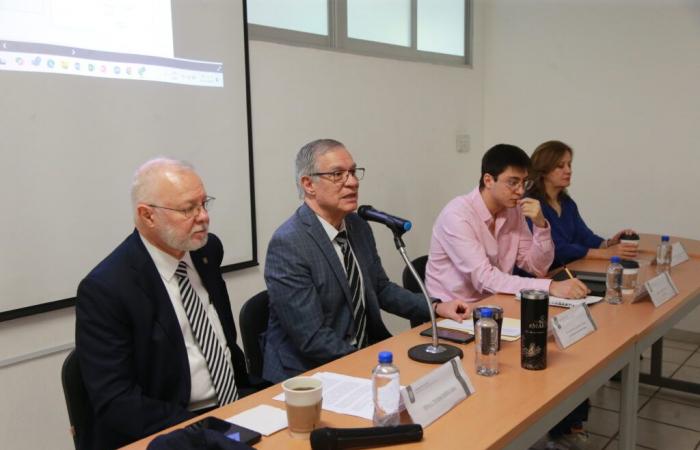Within the framework of the “Quantitative Methods” colloquium, students exhibit research topics to address social problems with data
The approach of social problems, quantitative work through data and theory are the tools that social scientists use to understand problems, develop perspectives, make better decisions and influence public space.
At the inauguration of the third colloquium of “quantitative methods”, organized by the Academy of Quantitative Methods, the head of the Department of political Studies (Dep) of CUCHS, Doctor Armando Zacarías Castillo, celebrated that the students expose their research topics to address social problems with the help of data.
“One of the objectives is to put students in the perspective of quantitative work, that is, in the development of more acute perspectives, design and instruction of public affairs,” he said.
At the inauguration of the Colloquium, in charge of the teacher José Trinidad Padilla López in the Fernando Carlos Vevia Romero del CUCSH room, Zacarías Castillo highlighted the impulse of the quantitative methodologies to sustain explanatory models or public policies.
“The collection and analysis of data and numbers helps warn patterns and trends of a population to test hypotheses, make projections, generalize results to facilitate informed decision making and public policy design,” he added.
For Padilla López, the colloquium generates skills in a complex reality to intervene in public space.
The president of the Academy of Quantitative Methods of the DEP, Dr. Ana Eduviges Ortiz Medina, said that this third edition of the colloquium seeks that the community practice statistical techniques.
“Either through official surveys or data, which practice all statistical, descriptive, inferential, parametric and non -parametric ethics techniques, where students expose their research projects to promote data analysis and see their usefulness,” he said.
He added that the data has application and research design to apply the theory and check the hypotheses raised within the research problem.
The inaugural chair of the colloquium was dictated by the teacher Diego Elvira Torres, graduated from the DEP, with the work “political behavior in the language of statistics: using quantitative tools to test theories.”
For Elvira Torres, quantitative methods help researchers, public and private agents to make the best decisions, “and thus make a more accurate analysis, based on the empirical, based on statistical theory, which will allow us to reach much stronger conclusions in the understanding of problems and make the best decisions that, in the end, is a great advantage,” he said.
The colloquium will gather, in two days, 54 students of students of the degrees in Political Studies, Sociology, Social Work and Geography, in addition to the Master in Educational Research and the PhD in Social Sciences.
Attentively
“Think and work”
“1925-2025. A century of thinking and working”
Guadalajara, Jalisco, May 7, 2025
Text: Adrián Montiel González
Photography: Abraham Aréchiga






